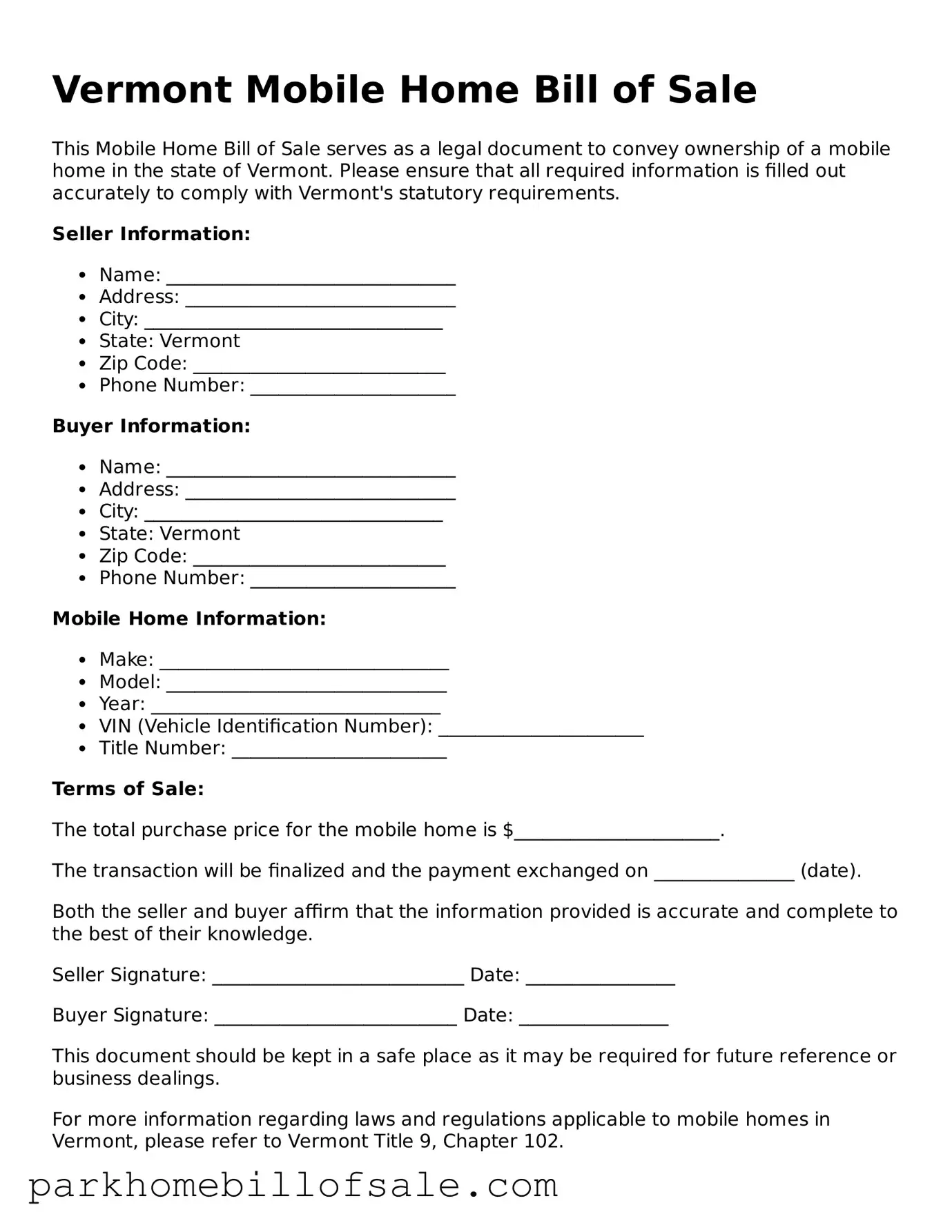Documents used along the form
When buying or selling a mobile home in Vermont, several documents may accompany the Mobile Home Bill of Sale. Each of these forms serves a specific purpose and helps ensure a smooth transaction. Below is a list of commonly used documents in this process.
- Title Transfer Form: This document is necessary to officially transfer ownership of the mobile home from the seller to the buyer. It provides legal proof of the new owner.
- Affidavit of Ownership: This is a sworn statement that confirms the seller's ownership of the mobile home. It can be useful if the title is lost or missing.
- Purchase Agreement: This contract outlines the terms of the sale, including the price and any conditions. It protects both parties by clearly stating their responsibilities.
- Inspection Report: An inspection report details the condition of the mobile home. Buyers often request this to identify any potential issues before completing the sale.
- Loan Documents: If the buyer is financing the purchase, loan documents will be necessary. These include agreements with lenders detailing the terms of the loan.
- Insurance Policy: Proof of insurance may be required before the sale is finalized. This protects the buyer against potential damages or losses.
- Sales Tax Form: This form may be needed to report the sale and pay any applicable sales tax. It helps ensure compliance with state tax laws.
- Moving Permit: If the mobile home is being relocated, a moving permit may be required. This document ensures that the move complies with local regulations.
- Utility Transfer Forms: These forms facilitate the transfer of utility services to the new owner. They ensure that water, electricity, and gas services are properly set up.
Having these documents ready can help streamline the buying or selling process. Each form plays a crucial role in protecting the interests of both the buyer and the seller, making the transaction smoother and more secure.
